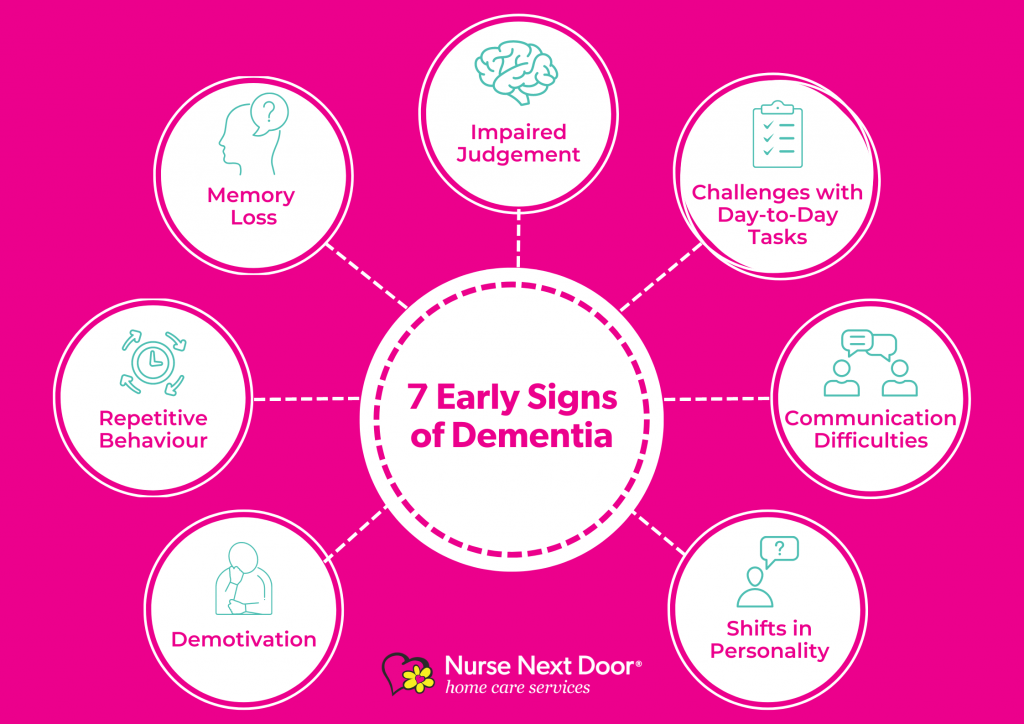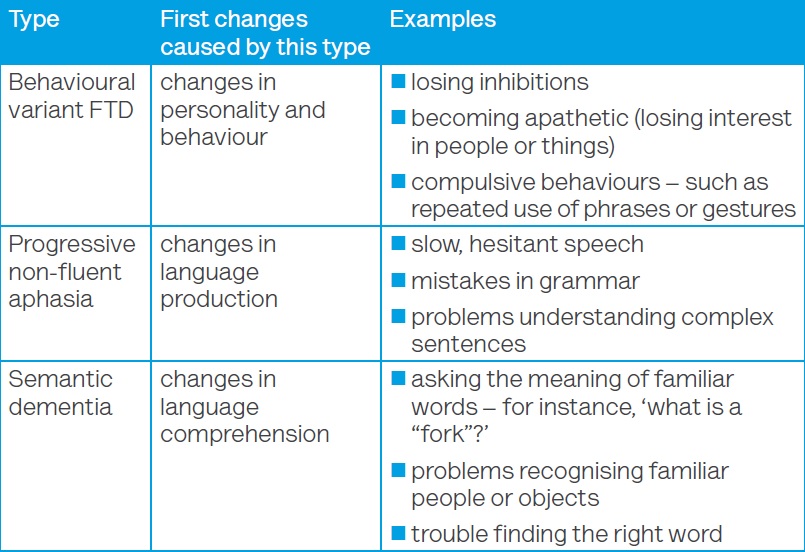A Step-by-Step Guide to Managing Fall Risk in Dementia Care
A Step-by-Step Guide to Managing Fall Risk in Dementia Care
Blog Article
Understanding the Effect of Dementia on Every Day Life and Caregiving
Mental deterioration influences everyday life in profound methods, influencing not just those identified yet also their caregivers. As cognitive decline advances, you could discover adjustments in communication and routine that obstacle both events.
The Stages of Dementia and Their Results on Life
As you browse the trip of mental deterioration, understanding its stages can noticeably impact how you manage day-to-day life. Mental deterioration generally progresses through 3 major phases: early, middle, and late.
During the middle stage, you'll experience more visible cognitive decline. Daily tasks might become challenging, and keeping your freedom might require adjustments. Utilizing reminders and streamlining your setting can assist.
In the late stage, individuals typically require significant assistance with daily tasks. Preparation for care ends up being necessary, concentrating on comfort and lifestyle. By recognizing these stages, you're better geared up to react proactively, guaranteeing you or your liked one can navigate the obstacles with dignity and grace.

Changes in Communication and Social Interaction
How do modifications in interaction affect your daily interactions as dementia progresses? As dementia advances, you may discover that simple conversations end up being difficult. Words may escape you, or you may battle to find the right expressions. This can bring about disappointment for both you and your liked ones. Nonverbal cues, like gestures or faces, end up being progressively essential.
You may locate it easier to connect via these ways rather than relying exclusively on talked language. Paying attention skills can also transform; you may discover it harder to remember or comply with conversations what was simply stated (Early Onset Dementia). This can result in misunderstandings or sensations of isolation
Motivating patience and developing a supportive setting can help. Participating in activities that promote link, like music or art, can improve social communications. Remember, preserving relationships is still feasible; it's just about adjusting to new methods of connecting.
Influence On Daily Routines and Activities
While navigating everyday routines, you'll likely observe that jobs you as soon as finished effortlessly ended up being a lot more tough as mental deterioration proceeds. You could locate on your own neglecting steps in acquainted routines or battling to remember where you positioned things.
Preparation your day can really feel frustrating, making it tougher to adhere to a timetable. You might require tips for visits or to take medicines. Adjusting your setting can aid; for example, classifying products or utilizing checklists can simplify tasks. Engaging in repetitive, organized tasks can likewise supply convenience and a sense of achievement. Bear in mind, it's alright to request aid. Surrounding on your own with encouraging friends or family can make taking care of these modifications a bit simpler.
Emotional and Behavior Difficulties
Guiding through everyday regimens can produce not simply functional obstacles, yet additionally psychological and behavioral ones. You may see changes in state of mind, such as raised anxiousness or frustration, which can originate from confusion or trouble in finishing tasks. As you browse these minutes, it is vital to identify that your loved one may express their feelings via behaviors like anxiety or withdrawal.
These psychological reactions can be uncertain and may arise without caution, leaving you both sensation overwhelmed. You may find that familiar settings or routines can assist minimize stress and anxiety, but preserving perseverance ends up being significant. It is essential to confirm their feelings, even if you do not totally understand them.
The Duty of Caregivers in Supporting Individuals With Dementia
As a caretaker, you play a vital role in supplying psychological support for individuals with mental deterioration. Establishing everyday treatment regimens can create a sense of stability and convenience, aiding to ease their stress and anxiety. By understanding their needs and making use of effective techniques, you can greatly improve their quality of life.
Psychological Assistance Techniques
When caring for a person with dementia, recognizing the psychological landscape is necessary for supplying effective assistance. Easy motions, like holding their hand or preserving eye get in touch with, can develop a sense of safety and security. Inevitably, don't neglect to take care of your very own psychological demands; seeking assistance for yourself can improve your ability to care for them.
Daily Treatment Routines
Establishing daily treatment routines is vital for providing stability and convenience to individuals with mental deterioration, as these routines can help lower complication and stress and anxiety. You can start by laying out a consistent routine for dishes, activities, and remainder. This predictability helps your liked one really feel much more safe and involved.
Incorporate acquainted jobs, like folding washing or watering plants, which can evoke positive memories and cultivate a sense of achievement. Usage aesthetic cues, such as checklists or calendars, to lead them through the day.
Be versatile, though; adjust regimens as required based on their state of mind or energy levels. Vascular Dementia. Bear in mind, your persistence and understanding are vital in steering their transforming demands, ensuring they feel supported and valued throughout their every day life
Producing a Safe and Comfortable Living Environment
Creating a secure and comfortable living atmosphere is crucial for individuals with mental deterioration. You'll wish to make home safety alterations that minimize threats and ensure familiarity to supply a feeling of comfort. By concentrating on these elements, you can aid create a room that sustains both safety and security and health.
Home Safety Adjustments
As you navigate the challenges of dementia, making home have a peek at this website security adjustments can considerably boost comfort and safety and security. Beginning by removing tripping risks like carpets and clutter, guaranteeing sidewalks are clear. Set up grab bars in shower rooms and non-slip mats in the shower to avoid drops. Consider making use of brighter lighting and evening lights to boost exposure, specifically during nighttime. Tag crucial locations, such as the restroom and kitchen, with clear signs to aid with positioning. Secure any type of sharp items or poisonous substances unreachable. Furthermore, evaluate your home's alarms and locks to confirm they're easy to use and offer tranquility of mind. These alterations not just promote security however also encourage independence, permitting your liked one to feel more at simplicity in their environment.
Convenience and Knowledge
After making sure a secure setting with necessary modifications, cultivating comfort and experience is necessary for people with dementia. Beginning by personalizing their room. Usage acquainted colors, designs, and photographs that evoke delighted memories. A preferred blanket or chair can provide a complacency. Preserve a regular regular to help them feel based and lower anxiety. Simple, familiar meals can likewise produce a calming atmosphere. Maintain paths clear and clutter-free to stay clear of confusion. Incorporate soft lighting, as brilliant lights can be disorienting. Take into consideration including calming scents, like lavender, to promote relaxation. Involving in familiar activities, such as listening to songs or horticulture, can boost their sense of belonging, making their living atmosphere a true sanctuary.
Approaches for Effective Caregiving and Assistance
While navigating the difficulties of dementia treatment can really feel frustrating, applying effective approaches can considerably improve both the caretaker's and the client's everyday experience. Start by developing a regimen; predictability assists minimize stress and anxiety for both click to read you and your enjoyed one. Use clear, basic communication-- brief sentences and direct concerns can stop confusion.

Don't fail to remember to care for on your own; schedule breaks and attach with support system. Sharing experiences with others in comparable scenarios can give important insights and psychological alleviation.
Finally, stay individual and adaptable. Mental deterioration can bring unpredictable changes, so adapting your strategy is essential. By utilizing these techniques, you can promote a more favorable setting that profits both you and your enjoyed one.
Frequently Asked Inquiries

What Are the Different Kinds Of Dementia?
You'll locate several kinds of dementia, consisting of Alzheimer's, vascular dementia, Lewy body mental deterioration, and frontotemporal dementia. Each type influences memory and cognitive feature in different ways, so recognizing the differences is crucial for correct medical diagnosis and care.
Just How Can I Help A Person With Early-Stage Mental Deterioration?
You can help someone with early-stage dementia by holding your horses, offering assistance, and urging them to engage in activities they appreciate. Keeping routines official statement regular and maintaining open interaction can also make a substantial distinction in their every day life.
Are There Financial Resources Available for Dementia Treatment?
Yes, there are funds readily available for mental deterioration care. You can explore entitlement program programs, not-for-profit companies, and insurance coverage options. It's likewise smart to get in touch with local companies for details sources tailored to your scenario.
What Lawful Factors To Consider Should Caregivers Understand?
As a caregiver, you ought to take into consideration power of lawyer, health care proxies, and guardianship regulations. It's vital to comprehend the legal rights and duties you hold, guaranteeing your enjoyed one obtains suitable treatment and defense.
Just How Can I Deal With Caretaker Tension?
You can handle caregiver stress and anxiety by prioritizing self-care, looking for assistance from close friends or groups, establishing sensible expectations, taking breaks, and practicing relaxation methods. Remember, your wellness matters just as long as the person you're looking after.
Comprehending the Impact of Dementia on Daily Life and Caregiving.
As you navigate the trip of dementia, recognizing its stages can significantly influence how you take care of everyday life.While navigating everyday regimens, you'll likely see that tasks you as soon as completed easily come to be extra tough as dementia proceeds.Developing daily care regimens is vital for supplying stability and comfort to individuals with dementia, as these regimens can aid reduce confusion and stress and anxiety.While maneuvering the obstacles of mental deterioration care can really feel overwhelming, applying reliable approaches can substantially boost both the caretaker's and the individual's everyday experience.
Report this page